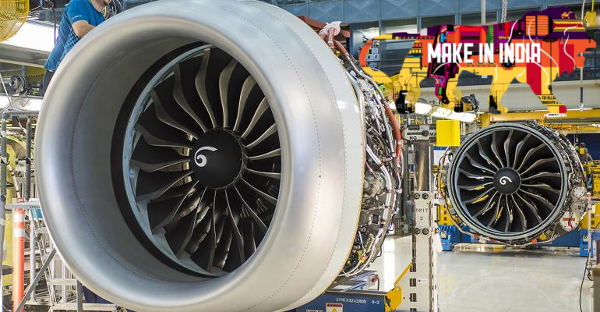With the Kaveri jet engine programme stalled due to technological challenges, the Defence Research and Development Organisation (DRDO) is planning to set up a new complex to develop jet engines for future Indian fighter aircraft.
A report in the Economic Times says the complex may develop a completely new jet engine, one that can provide a thrust of 110 kilo newton (kN).
The engine, which may come up within seven years of starting work, will be used for the future class of Advanced Medium Combat Aircraft (AMCA), the fifth generation fighter currently in development for the Indian Air Force.
“The new engine complex is being set up as a national mission to develop a 110 kilo newton powered engine for the future class of AMCA and could produce the engine within seven years of starting work,” the report says.
This development comes at a time when the Comptroller and Auditor General of India has come down heavily on the government’s offset policy for defence procurement, saying that the transfer of technology to DRDO for reviving the stalled Kaveri engine programme, part of the deal, has not been completed.
“DRDO wanted to obtain Technical Assistance for the indigenous development of engine (Kaveri) for the Light Combat Aircraft. Till date, the Vendor has not confirmed the transfer of this technology,” the CAG says in its report.
It was not clear if the transfer will even take place, the CAG added.
In this respect, the Economic Times report says the new complex may receive French assistance in the development of the new jet engine and discussions for the same are currently on between the two sides.
Safran, a French company that manufactures engines used in Rafale fighters, has reportedly offered complete technology transfer to develop the engine under the terms of the offset clause part of the Rafale deal with India. The French manufacturer, the report says, is also tying up with Hindustan Aeronautics Limited (HAL) for transferring manufacturing technology for high-end engines.
“We are signing an agreement related to the technology needed for high thrust engine manufacturing. The technology will be common to the Rafale engines that can be supported by us and would also be useful for the 110 kN engine project,” HAL Chairman R Madhavan was quoted in the report as saying.
While the new complex currently in the works will deal with high thrust engines, like the 110 kN thrust engine being considered currently, HAL will look into less technologically challenging and lower thrust engines for use on future helicopters, light transport aircraft, unmanned aerial vehicles and trainers
At the same time, HAL will be a manufacturing partner in the 110 kN thrust engine programme of the new jet engine development complex.
While the new engine may not be ready in time for the first few squadrons of the AMCA fighter of the IAF, the future squadrons may be equipped with it.
The development of a new high-thrust engine will rid India of its crippling dependence on Russia and the West for engines to power its fighters.
A homegrown engine will raise the level of indigenous content in future Indian fighter jets and bring down their cost significantly.
Source: Swaraj Magazine
You may also like
-
IAF Aircraft Set Course For Exercise Eastern Bridge VII At Oman
-
IAF Set To Host The Indian Defence Aviation Exposition-II At Jodhpur
-
Defence Secretary to co-chair 5th India-Philippines Joint Defence Cooperation Committee meeting in Manila
-
Simultaneous Launch Of ‘malpe And Mulki’, Fourth And Fifth Ships Of Asw Swc (Csl) Project
-
Aatmanirbharta in Defence: MoD signs Contract with HAL for 240 AL-31FP Aero Engines for Su-30MKI Aircraft
